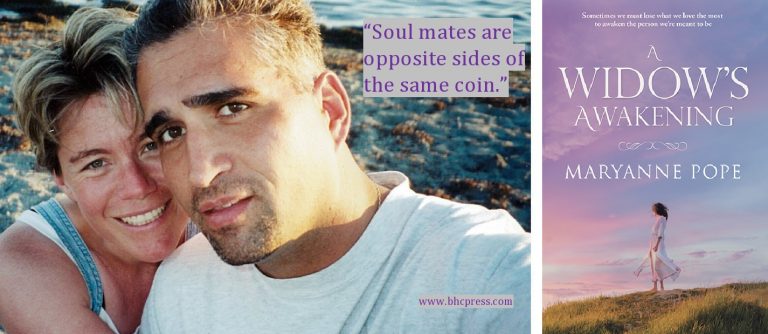Updated June 1st, 2022
Death-walking – The Sacred Role of Accompanying the Dying
“When you are with a dying person, you are exactly the one who is supposed to be there. There are no mistakes, and there are no coincidences…have you any idea how hard the Universe had to work to get you in that room, at that time, with that person? It is imperative to trust that all those present have agreed, at a very deep spiritual level, to be part of this particular experience.”
– Claire Scott, “Butterfly Wisdom; Gifts from the Dying”
Have you ever heard of a “death-walker?”
If you’re not familiar with the term, basically a death-walker refers to someone who accompanies a person as they make the final leg of the journey to the end of their life.
Whether one is a trained professional – such as a palliative care worker – or a loved one, being with someone as they pass from life to death is not for the faint of heart. But it’s an extremely important role…and a very sacred one, in my experience.
“One way to create peace for those in transition is through the practice of death-walking,” explains author Claire Scott in her beautiful book, “Butterfly Wisdom, Gifts from the Dying.”
Scott refers to the teachings of Barbara Marciniak regarding the role of a death-walker: “When you become a death-walker, you are able to make the death experience with another and walk back from it – to go to the other side and come back.”
I was only 32 when I found myself, for the first time, in the heartbreakingly difficult position of accompanying a loved one through the dying process. Click To TweetAt 5:30 a.m. on September 29th, 2000, John, my police officer husband, fell through an unmarked false ceiling while searching a warehouse. The back of his head hit the concrete floor with enough force that by 11:00 a.m., he was declared legally brain-dead.
However, because John was an excellent candidate for organ donation, he was kept on life support for thirteen more hours – which meant I was able to spend the entire day with him as he passed between life and death.
This excerpt from my book, “A Widow’s Awakening,” explains what happened shortly after I was told by the doctor of John’s brain-death (“Sam” is John):
Although Sam hasn’t changed since I first saw him in the ICU room, everything else has. The only sounds are the beeping of the computer monitor and the drip, drip, drip of his IV’s. I walk over and gently take his hand. “What am I gonna do without you?”
I feel a tiny amount of tension, as if he’s trying to hold my hand. Is this possible if a person is brain dead?
Then I see a bit of blood has trickled from his left ear onto the pillow. No.
Not wanting anyone else to see the blood because Sam is such a private guy, I cover it up with a piece of gauze. I place my hand on his forehead. It’s too hot.
“I noticed his shoulders are peeling.”
I look up and see the nurse watching me. “Was he somewhere warm?” she asks.
“Yeah. We were in Vegas and he wouldn’t wear any sunscreen.
She tilts her head. “So you guys were just on holidays?”
I swallow. “Uh huh. We had an awesome trip.”
“You’re very lucky.”
I stare at her.
“Those memories will carry you far.” She walks over and takes my hand. “This will undoubtedly be the most difficult day of your life but it’s also a very special time for you and Sam. Many people don’t get the opportunity to say goodbye while the person is still alive to hear.”
“But can he hear me?”
“It’s possible. They say hearing is the last sense to go.”
I stayed by John’s side throughout the entire day, talking to him, kissing him, holding his hand…comforting him as best I could as he made his way to the finish line – decades earlier than either of us had had expected or hoped.
Although it was by far the most difficult day of my life – and the last one of his – it was also a gift because it gave us a chance to say good-bye.
“Because it is a privilege to assist people when they die,” writes Scott, a former palliative care nurse, “death-walking is a very powerful practice which is not appropriate for everyone to undertake.”
“If you are very attached to the person,” explains Marciniak, “you may not be permitted to venture over with them because you might not come back.”
So it was with me. I took John only as far as I was permitted to – his organ removal surgery:
Just after midnight, an operating room becomes available. I watch as a group of nurses and technicians prepare Sam’s body for the transfer. One person temporarily detaches him from the respirator while another manually forces air into his lungs though a device that looks like a plunger. I want to scream. He’s leaving me and there’s not a goddamn thing I can do about it.
They wheel Sam out of his room and down the hall. I follow behind, right into the OR. When I turn around and see that several family members have followed us in, I scream at them instead: “Get out! Leave us alone!”
The medical personnel stare at me. But my crew of supporters high-tail it out of the operating room. I walk up to Sam, lean over and kiss him on the lips. “I love you.”
Then I take a deep breath, give him one last wave, turn around and walk out into the hallway full of family and friends.”
From a medical perspective, I wasn’t allowed to stay in the operating room for his surgery. From a spiritual perspective, I know I would’ve had great difficulty letting him go. So instead, I went home – our home – to begin my new life as a widow.
But then an amazing thing happened. I awoke the next morning at 5:30 to see a large red light framing my entire bedroom window. When the organ removal coordinator called me a few hours later to update me on which of John’s organs were able to be donated (heart, kidneys and pancreatic islets), I asked her if she knew what time John’s heart was removed.
I could hear her flipping through her notes on the other end of the line.
“Here it is,” she says. “His heart was removed at 5:30 this morning.”
Perhaps after the death of John’s body, his soul accompanied me on the very first leg of my new journey?
There is no definitive answer to this question, of course – but I did begin to suspect that whatever happened between John and I, that day in the ICU, wasn’t just on the physical level.
Then, about three years after his death, I took a playwriting course and got the first, very rough, draft done of a play entitled, “Saviour.” Basically, the script explores the possibility that if John’s soul and my soul were indeed communicating the day he passed away, then what was said – and why?
Because knowing the honest and open relationship John and I had, plus the fact that we’d had a fight the day before about me not taking my writing seriously and the fact that his on-duty death was the result of an easily preventable fall at an unsafe workplace all led me to believe that if our souls were able to communicate that day, there was an awful lot for us to sort out, in order for both of us to find some sort of peace with his sudden death.
Another four years – and as many rewrites of Saviour – passed and the script was still nowhere near completion. Thankfully, however, the manuscript for my book, “A Widow’s Awakening,” was finally ready for publication. And since I’d decided to self-publish it, I took a course on self-publishing – and the instructor was none other than Claire Scott, author of two books on dying: Butterfly Wisdom; Gifts from the Dying (mentioned earlier) and Butterfly Blessings; A Little Book about Dying.
Now what are the chances that the person teaching my self-publishing course also just happened to be a former palliative care nurse who has written two outstanding books on the dying process? Fairly slim, I suspect…especially when you consider that it was only when I read Butterfly Wisdom and learned about the concept of “death-walking” that my “Saviour” play – and the day I spent with John in the ICU – finally started to make some sort of spiritual sense.
Why it’s enough to make a gal suspect that the Universe has been working pretty hard to get us all lined up.
Maryanne Pope is the author of “A Widow’s Awakening.” She also writes screenplays, playscripts and blogs. She is the CEO of Pink Gazelle Productions and a co-founder of the John Petropoulos Memorial Fund. To receive Maryanne’s blog, “Weekly Words of Wisdom,” please subscribe here.






2 thoughts on “Death-walking – Accompanying the Dying”
Sadie is a beauty! She almost looks like she is smiling. Congrats on your new baby!
Thanks, Jennifer…Sadie is a real sweetie 🙂
ma